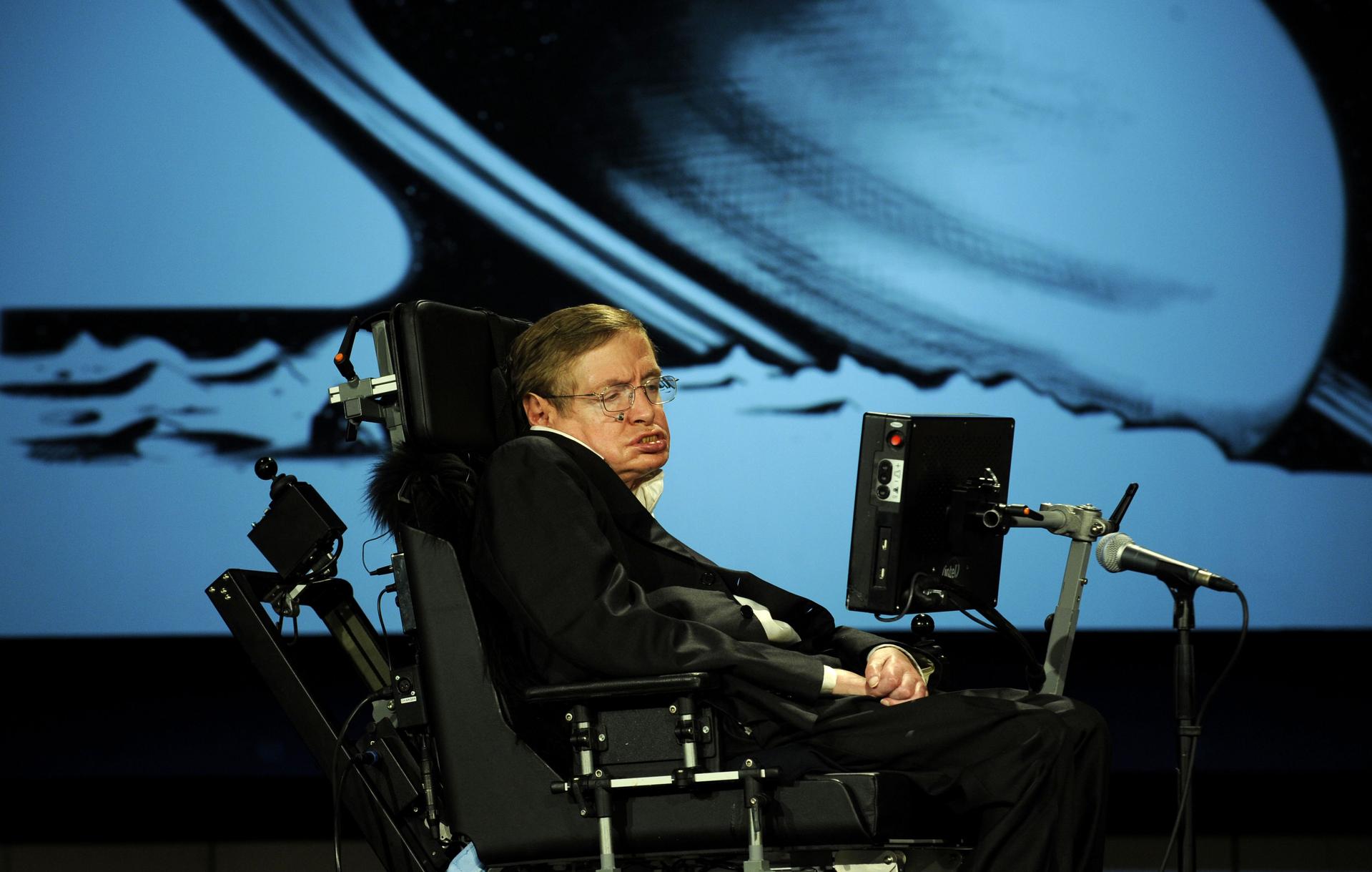'He Inspired Us All to Wonder': Scientists and the Public Remember Stephen Hawking
According to Lord Martin Rees — astronomer royal, emeritus professor of cosmology and astrophysics at the University of Cambridge, and fellow student of Hawking at Cambridge — Hawking viewed everything that happened after his devastating amyotrophic lateral sclerosis (ALS) diagnosis as a bonus. And he certainly didn't waste a minute of that time.
"He didn't just survive," Rees said in a statement. "He became one of the most famous scientists in the world — acclaimed as a world-leading researcher in mathematical physics; for his best-selling books about space, time and the cosmos; and for his astonishing triumph over adversity. Few, if any, of Einstein's successors have done more to deepen our insights into gravity, space and time." [Stephen Hawking's Far-Out Ideas About Black Holes]
"His passing has left an intellectual vacuum in his wake," said astrophysicist Neil deGrasse Tyson, who in 2017 became the first American to receive the Stephen Hawking Medal for Science Communication. "But it's not empty. Think of it as a kind of vacuum energy permeating the fabric of space-time that defies measure."
A science icon

At only 32, Hawking was elected a fellow of the U.K.'s Royal Society, the oldest national scientific institution in the world, for his work on radiation that escapes from black holes, later dubbed Hawking radiation. But his scientific interests were much broader.
"He had the ambition and the ability to tackle fundamental questions about gravity and quantum mechanics, their role in black holes and the origin of the universe," said David Wands, director of the Institute of Cosmology and Gravitation at the University of Portsmouth, in the U.K., and a former student of Hawking at Cambridge.
"He realized that black holes can emit radiation, which eventually leads them to evaporate," Wands said. "He also discovered that the same quantum effect in the very early universe can lead to small fluctuations in the density of the hot thermal plasma, a fraction of a second after the Big Bang, and this could lead to all the structures that we observe in the cosmos around us, galaxies, stars and, ultimately, planets and people."
A pop-culture physicist
In addition to pushing the boundaries of theoretical physics and stunning his doctors with his persistent survival against all prognoses, Hawking managed to accomplish something that many of his predecessors would deem impossible: He made a subject as complicated as astrophysics a matter of wide public fascination. His popularizing book "A Brief History of Time" (Bantam Books, 1988), in which he explains in layman's terms the evolution of the universe, occupied the British Sunday Times best-seller list for a record-breaking 237 weeks.
Sign up for the Live Science daily newsletter now
Get the world’s most fascinating discoveries delivered straight to your inbox.
"He was a true genius who had a great admiration of and connection to the public," said Katherine Mathieson, chief executive of the British Science Association. "He simplified and explained, but without gimmicks. His assumption that people are curious about the universe and black holes was true. He inspired us all to wonder."
Hawking — who used a wheelchair due to ALS and spoke with a machine-synthesized voice due to a life-saving tracheotomy he had in 1985 after contracting pneumonia during a trip to CERN (European Organization for Nuclear Research) — became a true pop-culture icon. The outpouring of condolences and expressions of respect on Twitter following the announcement of his passing has extended far beyond the scientific community.
"In loving memory of Stephen Hawking. It was an honor to have him," tweeted the team behind "The Big Bang Theory" TV series, where Hawking appeared on three separate occasions, the last of which was less than a year ago. "Thank you for inspiring us and the world."
Hawking, according to his long-term scientific collaborator Roger Penrose, always enjoyed his role of "the No. 1 celebrity scientist." He also appeared in an episode of "Star Trek: The Next Generation," and voiced himself on "The Simpsons" and "Futurama," to name just a few. In 2015, British actor Eddie Redmayne won an Oscar for portraying Hawking in the biographical drama "The Theory of Everything."
Despite his popular appeal, Hawking remained firmly rooted in the scientific world, having served as the Lucasian professor of mathematics at Cambridge, a highly prestigious position once held by Isaac Newton, for 30 years until he reached retiring age in 2009. He authored technical papers until his final decade, according to Rees.
"Huge audiences would attend his public lectures, perhaps not always just for scientific edification," Penrose said in an obituary in The Guardian. "The scientific community might well form a more sober assessment. He was extremely highly regarded, in view of his many greatly impressive, sometimes revolutionary, contributions to the understanding of the physics and the geometry of the universe."
A vocal advocate of the rights of people with physical disabilities, Hawking showed the world that people can live full lives despite having severe physical ailments.
In 2007, the then-65-year-old took part in a zero-gravity parabolic flight that gave him a 4-minute taste of weightlessness. Hawking was also scheduled to fly on one of the first suborbital flights of Virgin Galactic. Unfortunately, this last dream of Hawking will not come true.
In a touching tribute, Virgin Galactic's billionaire founder, Sir Richard Branson, said he was honored to know Hawking, who helped name the company's VSS Unity SpaceShipTwo vehicle in 2016. The spacecraft carries Hawking's iris pattern, said Branson, who lamented never getting the chance to see the physicist fly in space.
"I am so sorry we didn't get him into space as he so dearly wished, but so thankful he was able to play such a meaningful role in the development of a new frontier he was so passionate about," Branson said in a statement. "It was a huge privilege to have him name VSS Unity, and we are honoured to fly his iris on our spaceship."
Follow us @Spacedotcom, Facebook and Google+. Original article on Space.com.











